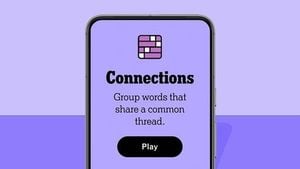Meta Platforms is pushing the boundaries of artificial intelligence integration within its messaging service, WhatsApp. The latest developments highlight two significant features aimed at enhancing user interaction: the introduction of AI-generated group icons and the testing of a new widget for faster access to Meta AI on Android devices.
According to Shargh Daily, as of March 8, 2025, WhatsApp users can now utilize AI technology to create unique and efficient group icons. Currently, this feature is limited only to group chats and requires users to access the beta version of WhatsApp. Upon creating these icons, all members of the group will be able to see them, fostering greater community engagement. Users can benefit from this feature by resolving group-related queries, brainstorming ideas for upcoming meetings, or creating visually appealing representations for their conversation spaces.
Nonetheless, this new ability does not extend to personal chats, which has raised expectations among users hoping for future updates allowing AI deployments to their profile pictures as well. This marked functionality aligns with Meta's efforts to expand AI capabilities across their platforms, which could eventually lead to even more versatility within WhatsApp. Further developments may also include AI features extending to personal messaging, enhancing the overall user experience.
Besides the group icon feature, Akhbar-e-Rooz reported on March 9, 2025, another exciting advancement: WhatsApp is currently experimenting with a new widget intended to provide quick access to Meta AI directly from the Android home screen. The widget, identified as part of the beta version 2.25.6.14, showcases three core functionalities. Users will be able to start direct chats with Meta AI, share photos rapidly, and engage with AI through voice interactions.
This exciting feature allows users to adjust the widget's size, enabling customization to suit their home screens efficiently. Although the widget is still restricted to the testing phase—only accessible to beta participants—it reflects Meta's commitment to developing AI capabilities within their messaging platforms.
Despite the enthusiasm, many users express concerns about privacy and security. Since WhatsApp is known for its end-to-end encryption, these AI features have raised eyebrows. Some individuals worry about the potential risks associated with integrating AI technology within fully encrypted messaging services, questioning whether this could jeopardize the security of their private communications. Users have been vocal about their skepticism, with many deeming the group icon feature and similar functionalities more cosmetic than truly beneficial for practical chat experiences.
Nevertheless, the integration of AI tools has elicited mixed reactions. While some users see the potential for greater engagement and creative expression within their group chats, others find little use for features like generating unique group icons—which could be perceived as more entertaining than functional. The implementation of AI response recognition for inappropriate images adds another layer to user interactions' functionality; users can report any unacceptable content, browsing through the fading boundaries between technology and human discretion.
According to reports, these recent changes could hint at the beginning of more advanced AI features arriving on WhatsApp's platform. Meta is expected to continue pushing for AI technological advancements as part of its strategy to expand its AI ecosystem. Users are eager to see whether these changes will manifest as they have been proposed and what other fresh AI functionalities might emerge.
Although concerns over privacy remain prevalent, the only way to assess the effectiveness of the new features is through continued user engagement and feedback. Meta aims to utilize WhatsApp’s vast user base to disseminate and test these AI developments widely. Users within regions where Meta AI is already active—limited as it may be—are positioned to experience firsthand what these advancements can offer.
It remains to be seen when and if these exciting features become universally available for all WhatsApp users. Nevertheless, the company's focus on developing AI integrations seems clear: they aim to enrich the messaging experience across all demographics. The thrill of new technology often brings with it apprehension about how it will impact existing systems, but for now, WhatsApp is poised to navigate this balance as it seeks to innovate and captivate users with its AI-driven enhancements.



